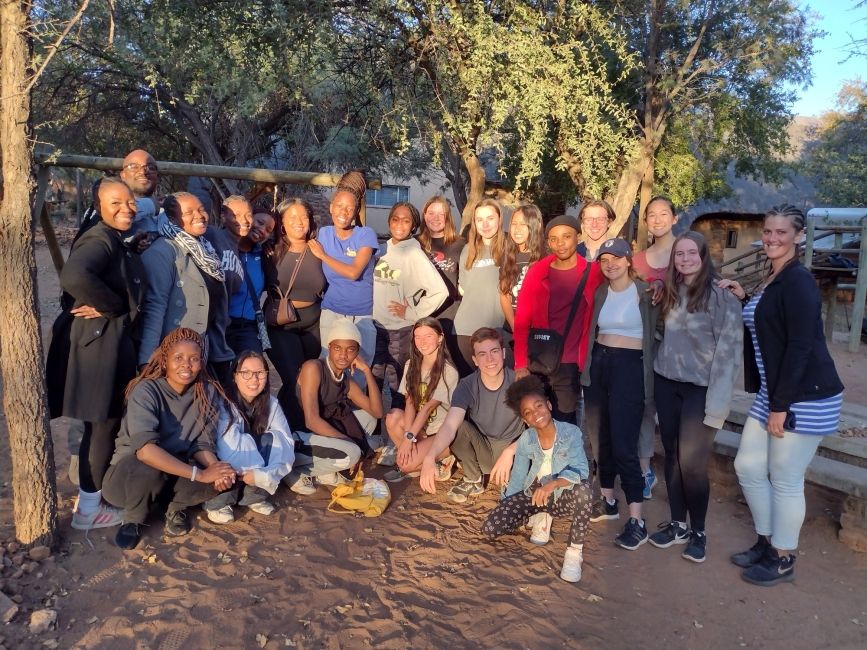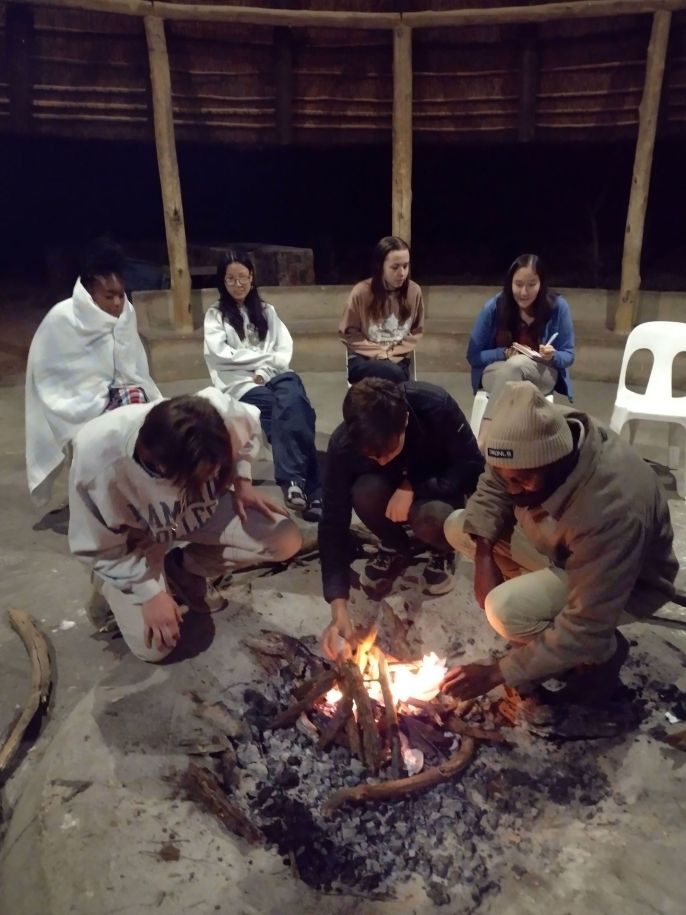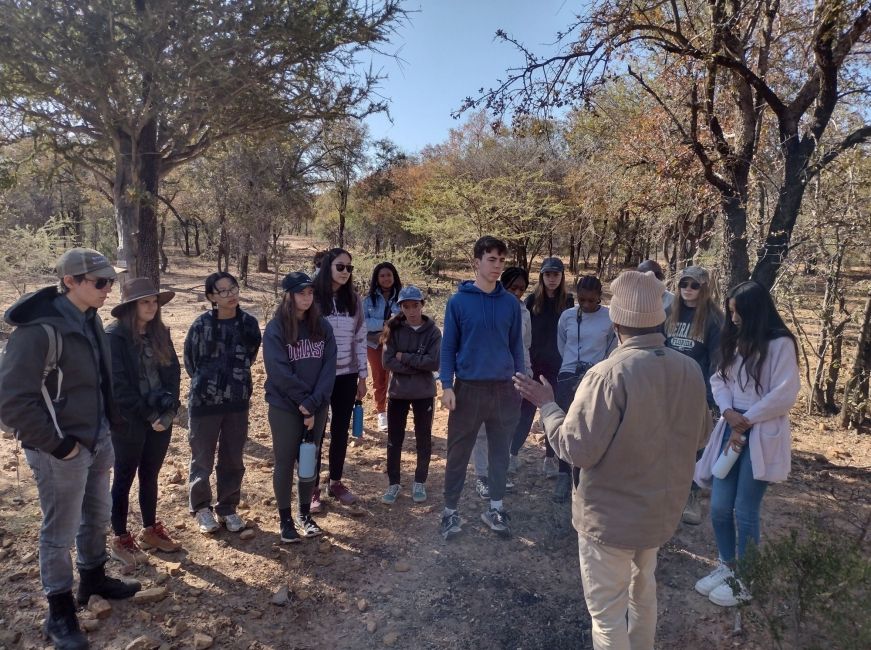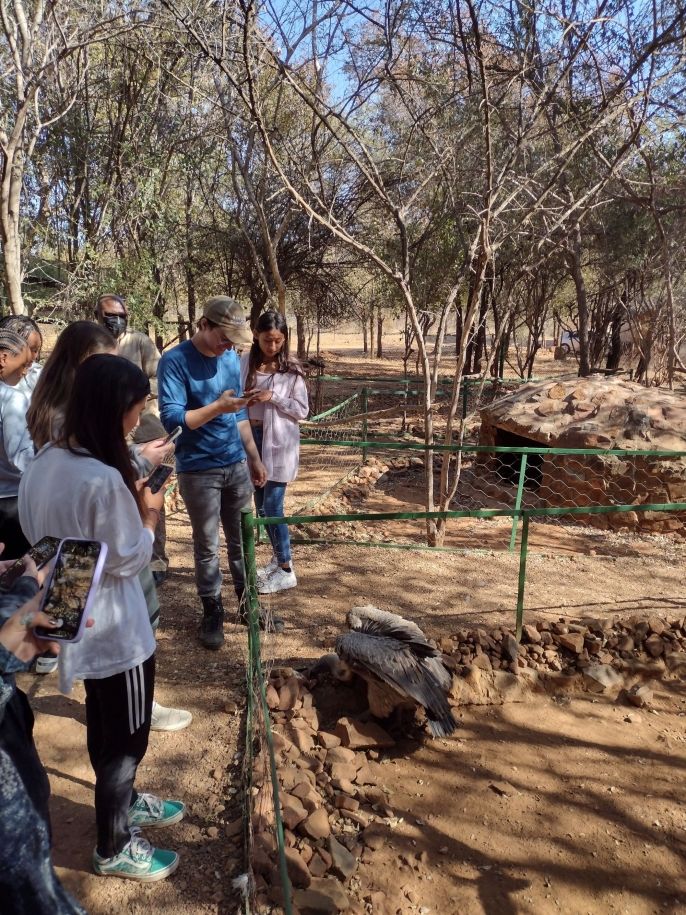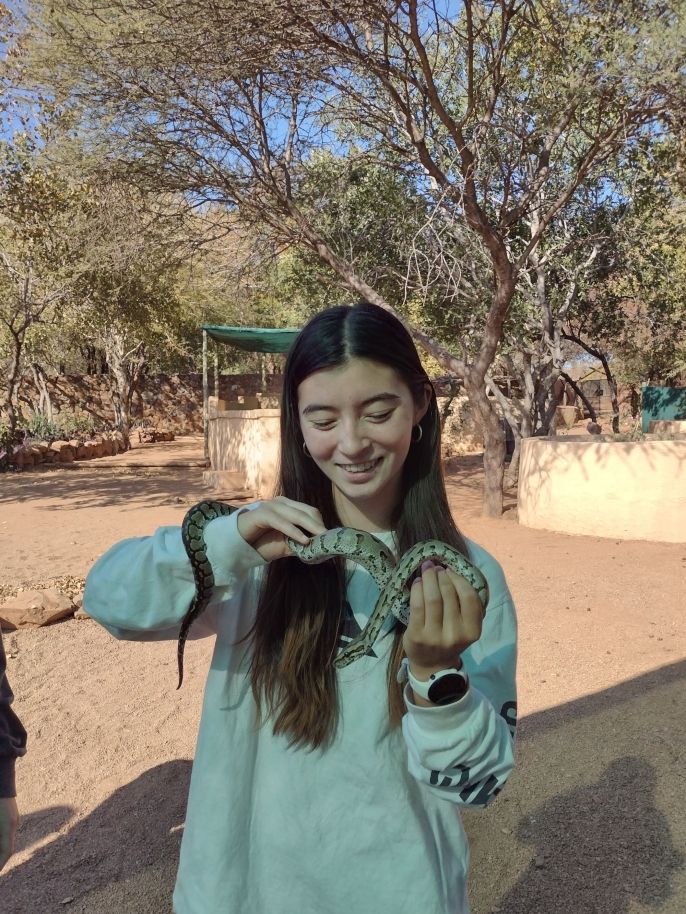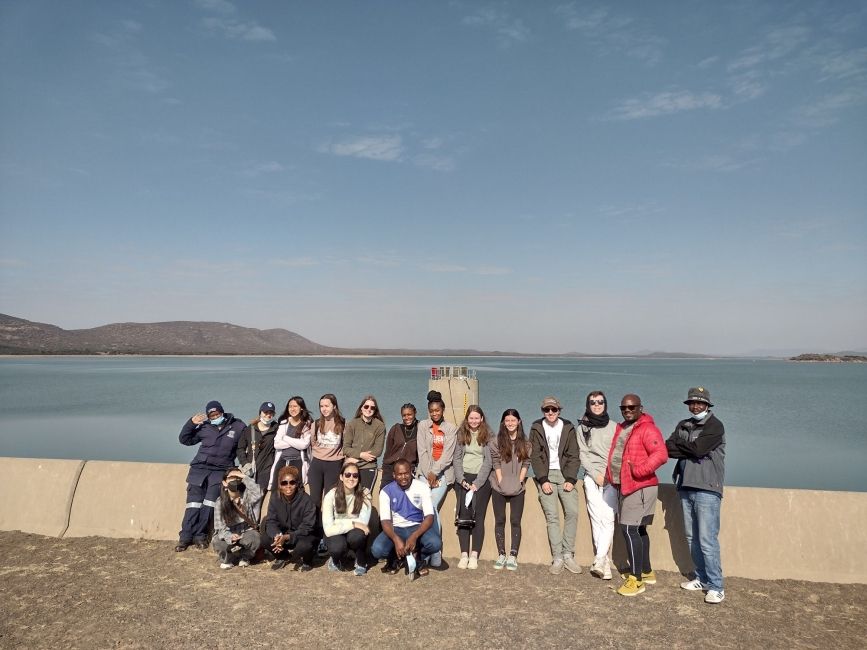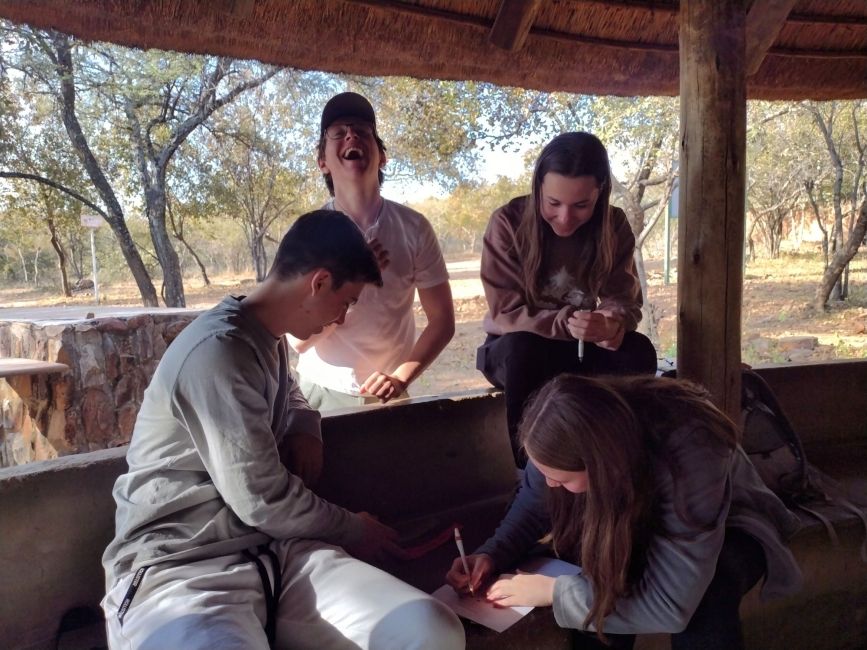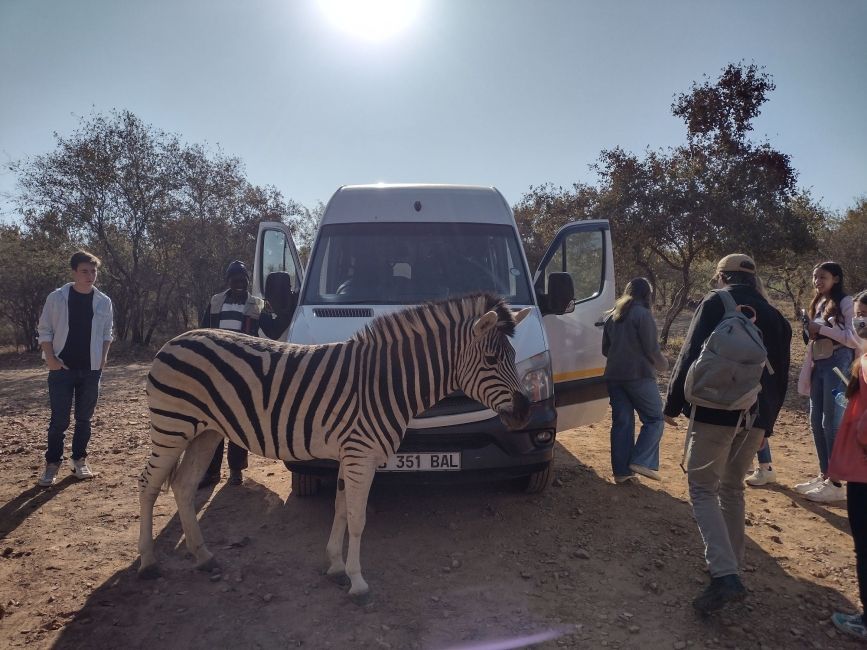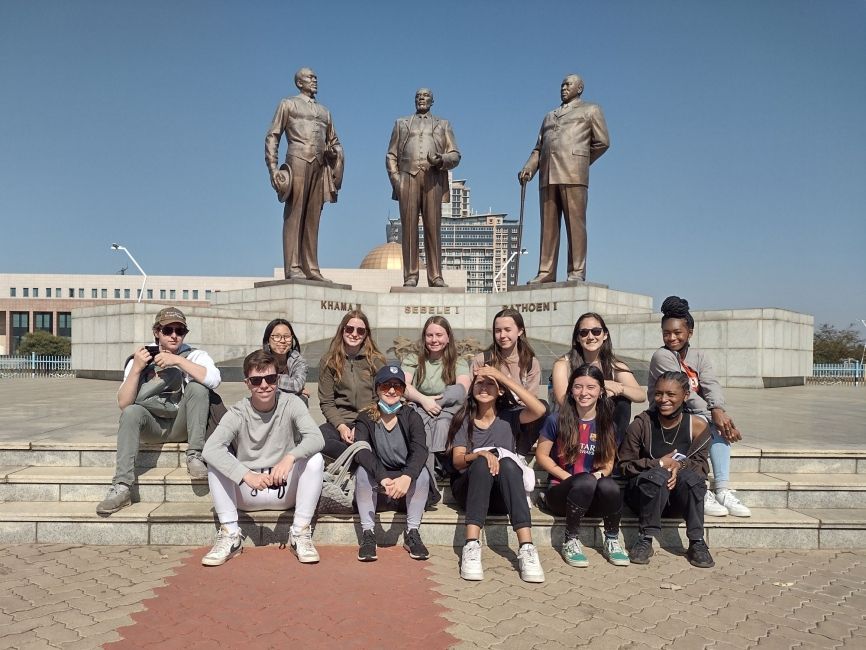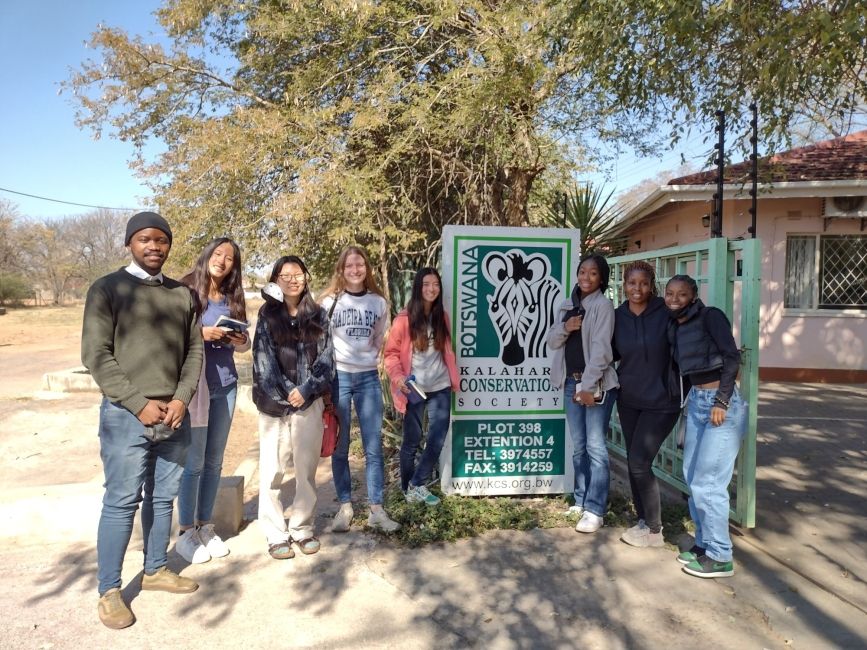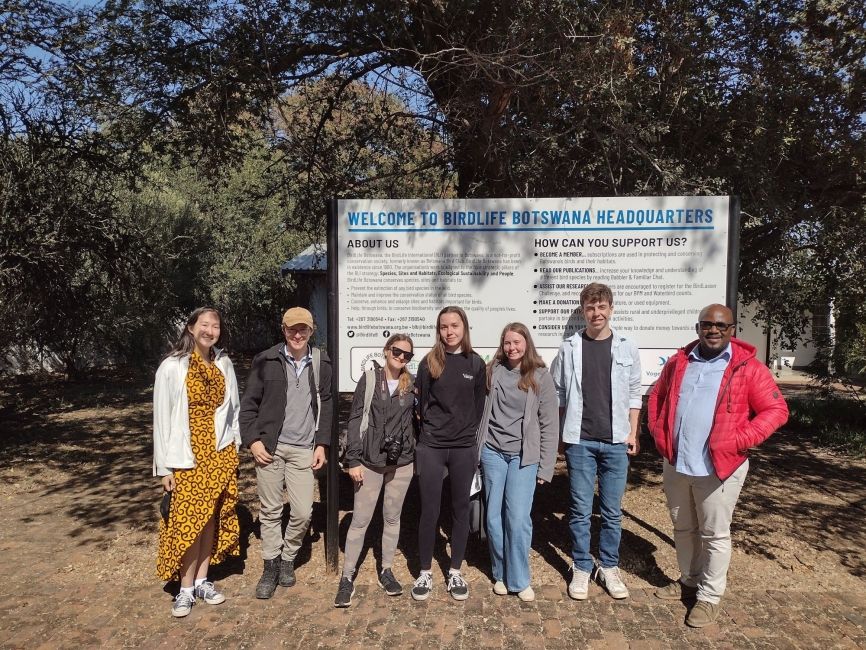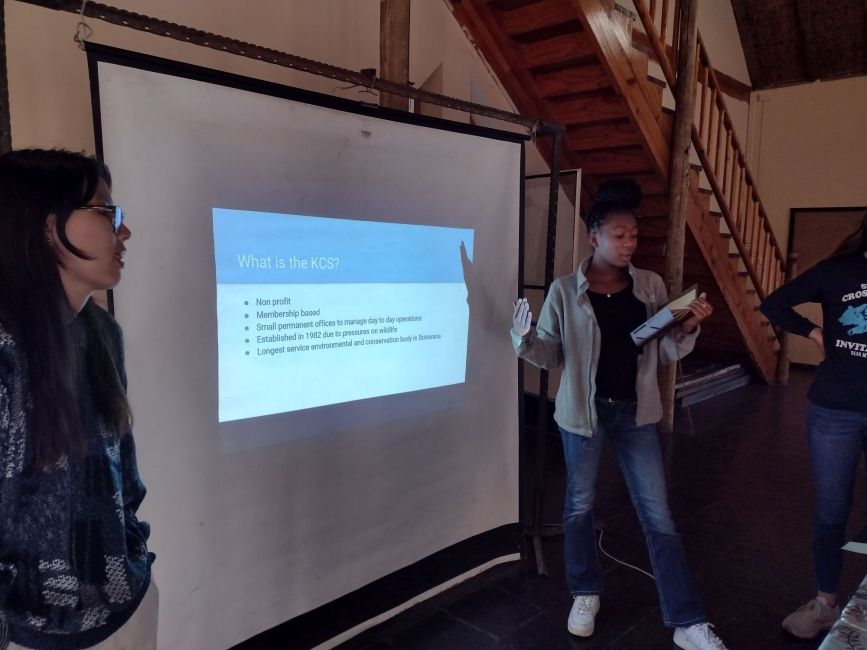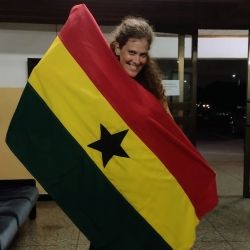Field Trips In Mokolodi And Around Gabs City
These last few days have been busy with lectures and field activities uncovering what conservation truly means. Many believe conservation is related to saving endangered wildlife from going extinct or building sanctuaries to protect individual species. Yes this is true, but the students have learned it's more than just that. Protecting the habitat of the species, including the flora, fauna, birds, etc. is the actual path to conservation, recognizing the importance of biodiversity within the ecosystem. Along with that, understanding the effects of climate change and drought and how the past and present decisions of local and global leaders impact the habitat of endangered species or the livelihood of people, especially rural communities, in Botswana. Learning that not one species is ever independent, but rather interdependent, including humanity.
Starting at Mokolodi we went out exploring the bush with Cam, our field instructor, learning about different trees and their uses, how termite mounds can be used as a compass knowing they are always leaning to the west and what different animal droppings mean to the environment. Along the way he spoke of survival skills in case one is lost in the bush. Speaking of what sticks to use to create a camp, while staying clear of any signs of wildlife or paying attention to the soil for erosion to know which way the water flows in case of flooding. We also went over to the sanctuary where some of the students got to hold baby snakes after learning about the different type of snakes in the area and what to do in case of a snake bite. The snakes they house are usually taken from farms where they are troubling homeowners. They are housed, assessed, then set free back into the wild. We also saw the vultures they rescue, usually found hit by cars or with broken wings. Vultures are critical to the environment and wildlife as they are the cleaners of nature by eating carcasses preventing disease from spreading at the same time dispersing nutrients that will seep back into the earth.
When it was time to go the city the students were excited as it was their first time away from the nature reserve. Many of them wanted Nando's chicken or a cheeseburger, but a couple of them opted to try some delicious local grilled meat. We went to Gaborone Dam to see with our own eyes the actual amount of water serving the city and surrounding areas. We also passed Three Chiefs Monument representing the three leaders who went to Britain asking for protection from other potential oppressive colonial rule that was sweeping southern Africa at the time. Today we visited two NGOs, Birdlife Botswana and Kalahari Conservation Society, getting to know about their work as well as the role of such organizations related to conservation in Botswana and surrounding countries. When we returned the students prepared presentations to share with the other group what they learned at their particular visit. These days have been packed with alot of new information so getting out was the perfect way to really let it all sink in.
Related Posts
Final Reflections and Advice for Future Students
It is our last day here in Botswana and before all the tears began, we asked students to share some of their final reflections and thoughts. Over the past three... keep reading
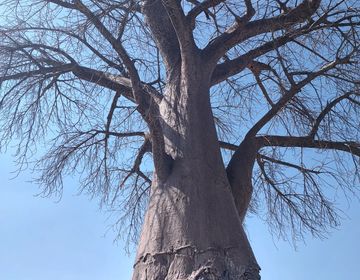
A Baobab that rose from the Okavango Delta
There are some things that are iconic to the continent of Africa- the big five, delicious food and the majestic Baobab tree. The Baobab is known as the tree of... keep reading
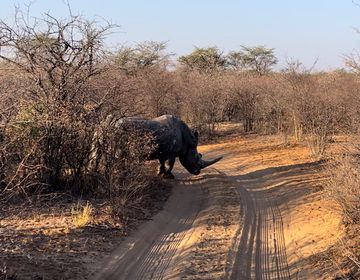
Khama Rhino Sanctuary
The first stop on our journey to the northern part of Botswana was the Khama Rhino Sanctuary; established in 1992, the sanctuary is a “community based wildlife project” aimed at... keep reading
